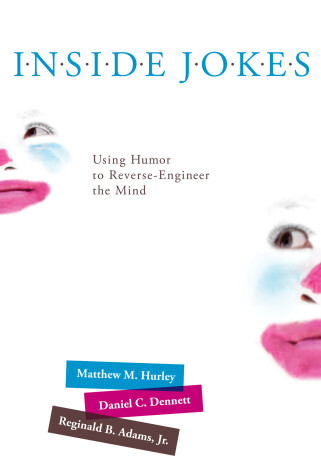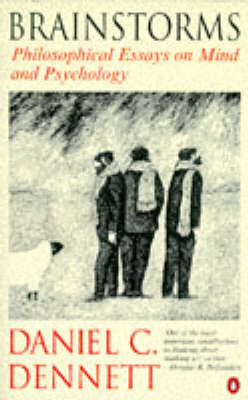The MIT Press
2 total works
Inside Jokes
by Matthew M. Hurley, Daniel C. Dennett, and Reginald B. Adams, Jr.
Published 4 March 2011
This evolutionary and cognitive theory of humor seeks to reveal the complex science behind why we crack up.
“A sophisticated analysis . . . written with clarity, good cheer, and, of course, wit.” ―Steven Pinker, author of How The Mind Works
Some things are funny—jokes, puns, sitcoms, Charlie Chaplin, The Far Side, Malvolio with his yellow garters crossed—but why? Why does humor exist in the first place? Why do we spend so much of our time passing on amusing anecdotes, making wisecracks, watching The Simpsons?
In Inside Jokes, Matthew Hurley, Daniel Dennett, and Reginald Adams offer an evolutionary and cognitive perspective. Humor, they propose, evolved out of a computational problem that arose when our long-ago ancestors were furnished with open-ended thinking. Mother Nature—aka natural selection—cannot just order the brain to find and fix all our time-pressured misleaps and near-misses. She has to bribe the brain with pleasure. So we find them funny. This wired-in source of pleasure has been tickled relentlessly by humorists over the centuries, and we have become addicted to the endogenous mind candy that is humor.
“A sophisticated analysis . . . written with clarity, good cheer, and, of course, wit.” ―Steven Pinker, author of How The Mind Works
Some things are funny—jokes, puns, sitcoms, Charlie Chaplin, The Far Side, Malvolio with his yellow garters crossed—but why? Why does humor exist in the first place? Why do we spend so much of our time passing on amusing anecdotes, making wisecracks, watching The Simpsons?
In Inside Jokes, Matthew Hurley, Daniel Dennett, and Reginald Adams offer an evolutionary and cognitive perspective. Humor, they propose, evolved out of a computational problem that arose when our long-ago ancestors were furnished with open-ended thinking. Mother Nature—aka natural selection—cannot just order the brain to find and fix all our time-pressured misleaps and near-misses. She has to bribe the brain with pleasure. So we find them funny. This wired-in source of pleasure has been tickled relentlessly by humorists over the centuries, and we have become addicted to the endogenous mind candy that is humor.
A collection of 17 essays exploring the central issues of the philosophy of the mind, and human interaction with psychology and evolutionary biology. This book questions the relationship between psychology and morality as well as exploring the concept of human intentionality. It argues that intentional attributes such as desires, goals, beliefs and knowledge are purely mechanistic. The author also considers the meaning of mental imagery, sensations, pain and other puzzling aspects of consciousness. Central to the discussion of the book is the question of whether psychology can support a vision of humans as moral agents, free to choose what they do and responsible for their actions.

